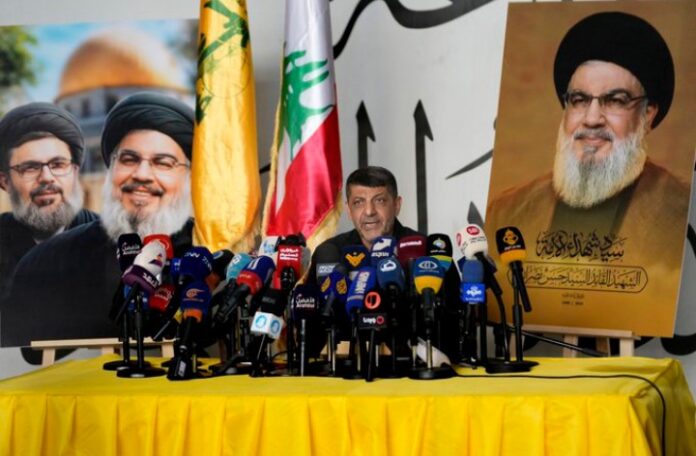Israel has launched a deadly airstrike in Beirut, killing Hezbollah’s chief spokesman, Mohammed Afif.
The strike, which hit the office of the Arab Socialist Baath Party in central Beirut, was part of a series of attacks aimed at Hezbollah’s stronghold.
A Hezbollah official, speaking anonymously, confirmed Afif’s death, highlighting the significance of the targeted killing.
Afif had become a prominent figure since the war between Israel and Hezbollah erupted in September, especially following the death of Hezbollah’s leader, Hassan Nasrallah, in an earlier Israeli airstrike.
The airstrike on Afif’s office marks the latest escalation in the ongoing conflict between Israel and Hezbollah, which intensified following Hamas’ October 7 attack in Gaza.
While Israel had warned people to evacuate certain areas, there was no warning ahead of the central Beirut strike, which left chaos in its wake.
“I was asleep and awoke from the sound of the strike, and people screaming, and cars and gunfire,” said Suheil Halabi, a witness to the attack. “I was startled, honestly. This is the first time I experience it so close.”
The escalation follows Hezbollah’s retaliatory actions after Hamas’ attack, with Hezbollah launching rockets, missiles, and drones into Israel.
In response, Israel has bombed multiple targets across Lebanon, including a military center in southeastern Al-Mari, which killed a Lebanese soldier and wounded three others.
The conflict has claimed at least 3,400 lives in Lebanon, with over 1.2 million people displaced. The toll continues to rise as the conflict spreads across the region.
Hezbollah has been firing dozens of projectiles into Israel daily, including an expanded range reaching central Israel.
These attacks have caused significant casualties, with at least 76 people killed, including 31 soldiers, and more than 60,000 people displaced.
Last Saturday, a rocket barrage on the northern city of Haifa damaged a synagogue and wounded two civilians, further heightening tensions.
The bombing of the Baath Party office in Beirut was not the first Israeli strike in central Beirut, but it marked a crucial moment in the conflict.
On October 10, a similar strike killed 22 people across two locations in the city, underscoring the deadly nature of the ongoing war.
Despite the devastating consequences of these airstrikes, Hezbollah has vowed to continue its offensive against Israel.
The killing of Mohammed Afif underscores Israel’s strategy of targeting senior Hezbollah officials in an attempt to weaken the group’s command structure.
While Hezbollah has not yet commented on Afif’s death, it is likely to escalate its own attacks in retaliation.
The war between Israel and Hezbollah, which began with a series of exchanges in early October, has now reached full-scale conflict.
With both sides entrenched in a cycle of retaliatory strikes, the death toll is expected to rise, and regional stability hangs in the balance.
The humanitarian impact of the conflict is catastrophic, with more than 1.2 million Lebanese displaced by the ongoing violence.
The Lebanese Health Ministry reports over 3,400 deaths, but the true toll remains uncertain, with many casualties likely unaccounted for.
As Israel’s airstrikes continue to target Hezbollah’s strongholds in Beirut, the future of the country remains uncertain.

